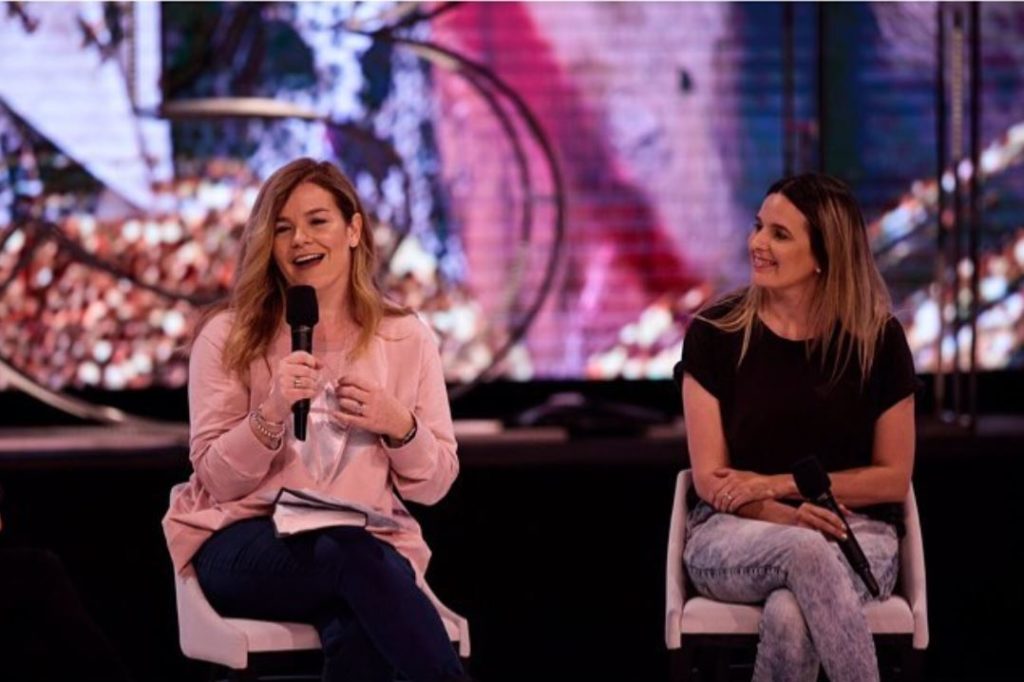As abortion debates heat up again, more churches are waking up to the need to respond with a more personal approach for women facing crisis pregnancies.
Jennifer Gurry, the founder of Diamond Women’s Support, a Sydney-based not-for-profit which aims to holistically assist women facing unexpected pregnancies, says that over the past few years she’s noticed churches trying to do better.
“Churches are gradually engaging us more than ever and finding new ways to put love in action, but there is still a long way to go,” Jennifer tells Eternity. “Pastors don’t know how best to help women in these situations, so they’re looking at ways outside of themselves. And that’s wonderful.”
It’s Jennifer’s prayer that more churches would choose to rally around their pregnancy support centre, rather than protesting outside abortion clinics.
But the first place to start, she says, is opening up ways for women in church to speak up if they do find themselves with an unexpected pregnancy.
“If we can’t talk about it, then when a woman does find herself in a place of unexpected pregnancy, she feels like she is not welcome [in the church], and that a termination is her only option so no one knows about it.

Jennifer Gurry (left) founded Diamond Women’s Support, a pregnancy support centre based in Sydney
“They feel like they’re in between a rock and hard place. And there doesn’t feel like a middle ground for them. But there really is,” Jennifer says.
“We don’t want to tell women what to do. We want to provide them with all the information and all the options so they can make an informed choice.”
Diamond Women’s Support has been operating for 13 years, and in that time says it has provided more than 1200 pregnant and parenting women with thousands of hours of counselling, mentoring and support.
“Knowing all the options is so important. It is how we empower women.”
“Our personal and corporate conviction is to share love, and we believe that God is the source of that love. And we demonstrate that love through compassionate care, honest information, transparency and we do it all free of charge regardless of the decision a woman makes.”
Jennifer says when she started the organisation in 2006, she saw a gap that desperately needed to be filled.
“I did some market research, asking the question, ‘If a woman finds herself facing unexpected pregnancy, who can she speak to? How does she find out what her options are? And you’d either come across very pro-life organisations or a termination clinic. There was nowhere for women to go to talk about all the options in a non-judgmental way.”
“Knowing all the options is so important. It is how we empower women.”
Part of the services Diamond Women’s Support offers is post-abortion counselling. In a video on Diamond’s Facebook page, Jaya Taki shares her experience of coming to the organisation for help after she’d had an abortion.
Jaya tells the story of being in an early relationship with a man and finding herself pregnant. Her partner’s strong feeling was to get an abortion, and Jaya – in a vulnerable emotional state and already tricky life circumstances – agreed.
“When we went to the [termination clinic] that day … I remember walking into the room, lying on the bed thinking I want to leave. I don’t want to do this. I was too scared. I didn’t want to walk out pregnant. I was concerned that my partner would be so angry with me. And that was it,” she says.
“I felt like I had been hit by a bus – not just physically but by grief … I started to be very depressed. I didn’t want to leave the house … I didn’t know you could suffer after having an abortion because no one told me, especially at the abortion clinic. I started to contemplate suicide.
“I don’t even know what happened to me, but two words came into my head: abortion grief. And I googled it and there were all these websites, including Diamond’s that came out. And everything they were saying was what I was going through.”
Jaya got in contact with Diamond and says that for the first time she felt important and supported.
“The number one reason girls come to us is loneliness. They don’t have a friend, or they’re missing an elderly woman or trusted confidante in their lives.”
Jennifer shares another story of a university student in her final year of law, who was concerned about how her pregnancy and impending baby would affect her studies.
“She was able to navigate how to keep her baby and finish her law degree with less trauma. She didn’t fall apart before her final exams,” Jennifer said.
Non-judgmental care and open conversations are the most important aspects of work like this, says Jennifer.
“The woman who walks through our doors is desperate for help and in a state of confusion. She’s not looking for a political organisation or a right/wrong stance on her possible termination. She wants to know what her options are and she wants help in walking that journey and knowing she’s not alone.
“She wants to know that if she chooses motherhood, she doesn’t have to do that on her own.”
“The number one reason girls come to us is loneliness. They don’t have a friend, or they’re missing an elderly woman or trusted confidante in their lives.
“She wants to know that if she chooses motherhood, she doesn’t have to do that on her own. She wants to know what it could look like if she did carry her baby to term. And she wants to be told that if she did choose a termination, what’s involved in that procedure. What are the facts – in a non-emotive, non-political environment, not being bullied or harassed or dismissed.”
Jennifer believes that more support for women facing unexpected pregnancies will result in fewer abortions.
“Just showing women genuine care is really important. So if termination is their first option, they’re shown that there are organisations that offer all kinds of support. It’s not about stopping women from terminating; it’s about making sure they know that there are other options and many are free of charge – counselling, parenting programs, mentoring. And if they know that and still choose to terminate their pregnancy, that won’t change our support and care of them. But it does help them understand that maybe there is another way.”


